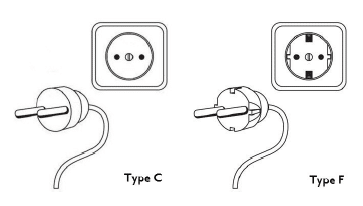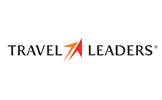NETHERLANDS

Fun Facts From Globus Tours
- The Netherlands is often referred to as Holland, although North and South Holland are actually only two of its twelve provinces.
- There around 22.5 mollion bicycles in the Netherlands
- The Netherlands is the third-largest exporter of agricultural produce – after the U.S. and France – even though only 3% of the Dutch population is employed in the agriculture sector.
- The Van Gogh Museum and the Kröller-Müller Museum of Holland house the largest Van Gogh collections in the world.
The Netherlands’ geography and geology are unique and have shaped its history and the character of its people. Named after the land’s unusually low location above sea level, about 15% of Holland’s 16,000 square miles is reclaimed land. The Dutch were pioneers of dike building and drainage canals, and the country’s development has always been influenced by its continuous struggle with the sea. A millennium ago, the western part of the country, known as Holland, controlled trade between the Baltic Sea, the British Isles, and the Mediterranean territories. In the late-16th century, it became a formidable power when Dutch explorers and merchants brought back valuable commodities from around the world. The best mapmakers of the time were feverishly producing updated versions of maps and globes based on a stream of information being brought back by its enormous merchant fleet. Buoyed by its wealth and status, the Netherlands experienced a Golden Age (1580-1720) in which the arts, trade, and science, as well as freedom of speech and publication, flourished. Many religious treatises were published, and Rembrandt, Vermeer, and Frans Hals created masterpieces that can be admired today in the Rijksmuseum. In 1795, Napoleonic troops invaded Holland, and its status as a world power began to wane. When the Napoleonic empire collapsed, the Netherlands became a royal nation under the house of Orange Nassau. After its occupation during WWII, Holland was able, with the help of the Marshall Plan, to restore its industries; today it holds a strong position in the international market thanks to the quality of its products.
Wherever you are in the country, you are always reminded that you are never far away from a large expanse of water; enormous clouds and moisture in the air cause special effects. The light becomes very mellow while the sun is setting, captured majestically by Rembrandt, Vermeer, and Van Gogh in their paintings.
The best pictures of the exuberantly decorated facades of the old city mansions are along the 17th-century canals of Amsterdam, the vibrant, friendly capital. Imagine the original gardens and hothouses where gardeners struggled to keep alive their prized exotic plants and flowers from overseas—small beginnings of one of the world’s most important horticultural industries.
VISAS, PASSPORTS, AND OTHER ENTRY REQUIREMENTS
Visas to Netherlands are not required for US citizens. If you hold a passport from another country, please check with your local consulate about requirements for travel to Netherlands. All passengers traveling internationally are required to have a passport. Please carry proper identification (your passport) on you and do not leave it in your suitcase or hotel room.
It is advisable to carry your passport with you at all times.
COUNTRY CODES
The country code for Netherlands is 31. When calling to Netherlands from overseas, dial your international access code (011 from the US/Canada), followed by the country code, area code, and phone number. Phone numbers in Netherlands are nine digits in length. Dialing from the US/Canada: 011 31+##+### ####.
CURRENCY
The official currency of the Netherlands is the Euro.
Bank hours: 9 a.m. to 4 p.m., Monday through Friday. Some branches stay open until 5 p.m. Thursdays.
Euro coins differ according to country, but they can be used in any Eurozone state. Bank notes are of uniform EU design (depicting European architectural styles throughout seven ages, from Classical to Modern times).
1 EURO (€) = 100 Cents (c)
- Bank note denominations: €5, €10, €20, €50, €100, €200, €500
- Coin denominations: 1c, 2c, 5c, 10c, 20c, 50c, €1, €2
For the most current exchange rates, please go to our website at Globusjourneys.com/Currency.
Credit cards are widely accepted (mostly Visa and MasterCard), and you should have no problems using them in larger shops and restaurants. Smaller shops may ask you to pay in cash or have a minimum amount required to use a credit card.
BUDGETING AND SHOPPING
The following budget guidelines are just approximate values or starting values for meals and are per person. Actual prices will vary widely by restaurant and city within a country but below are some averages as provided by our experienced personnel.
- The approximate cost of a soft drink/mineral water/coffee is €2.-3.50.
- An average lunch consisting of a salad or sandwich and a soda or water starts at approximately €10-15.
- Dinner at a mid-range restaurant with dessert and a non-alcoholic beverage starts at approximately €30-40.
Please note that soft drinks and mineral water are often as expensive, if not more expensive than wine or beer.
Shopping specialties: embroidery, wooden clogs, Delftware.
Counterfeit and pirated goods are widely available; be aware that under local law transactions involving such products may be illegal, and bringing them home may result in confiscation and fines.
Sales tax or VAT (value added tax) is included on price tags. To obtain VAT refunds (which may take up to three months to process) special forms usually have to be stamped by Customs; please ask for a tax-free shopping form with each purchase and follow the instructions for completion. Customs import charges on items shipped home are not included in purchase prices.
If you purchase tulip bulbs while in the Netherlands, please ensure that these are certified for import into your home country. Otherwise they are likely to be refused at Customs on your return home.
TIPPING
In restaurants where the service charge is already included, round up the bill by a Euro or two. When the service charge is not included, 10-15% is a reasonable amount, depending on customer satisfaction. Tips are usually left in cash and not added to the credit card payment.
For taxis, round up the fare (€1 for a city ride; €2 for a ride from/to the airport).
Tip hotel staff €1 for room service.
A few coins will be needed for public restrooms.
ELECTRICITY AND ELECTRICAL OUTLETS
Outlets
Voltage for outlets is 230V. North American voltage is generally 110V. Therefore, you will need a converter for your travels. Adapters will be necessary to adapt your plug into the outlet, but these may not convert the voltage, so both devices are necessary.

TEMPERATURES
In spring and fall weather can be unpredictable, so pack for all eventualities (a mix of mainly warm and a few lighter items). Rain wear is recommended year-round. To help you plan, below are average low and high temperatures for Netherlands.

To convert to Celsius, subtract 30, then divide by 2. While not exact, this simple formula will give a close estimation.
FOOD SPECIALTIES
Cheeses, waffles, pancakes/poffertjes, fish/seafood, and Indonesian dishes.
FEW WORDS OF THE LOCAL LANGUAGE
Dutch:

Good morning: Goede morgen, Good afternoon: Goede middag, Good evening: Goede avond, Goodbye: Tot Ziens, Yes: Ja, No: Nee, Please: Alstublieft, Thank you very much: Dank u wel, How much does it cost?: Wat kost dit?, 1: Een, 2: Twee, 3: Drie, 4: Vier, 5: Vijf, 6: Zes, 7: Zeven, 8: Acht, 9: Negen, 10: Tien, Where is…?: Waar is…?, Admission free: Vrije toegang, No Smoking: Verboden te roken, Entrance: Ingang, Exit: Uitgang, Restaurant check/bill: Rekening.
U.S. DEPARTMENT OF STATE COUNTRY INFORMATION
Additional country-specific information for US citizens can be found on the US Government’s website www.travel.state.gov. Here, you can find the most up-to-date information about destination descriptions, passports/visas, safety and security, transportation, travel local laws, alerts/warnings, vaccinations, and more. For citizens of other nations, we recommend you consult your local consulate for travel information, regulations, and requirements.












